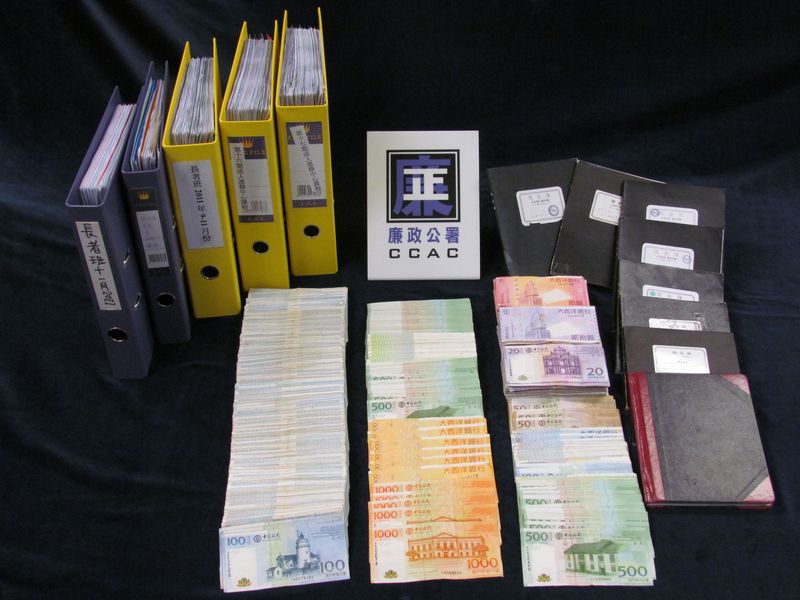 CCAC Breaks a Case of Continuous Fraud over Government Education Subsidies
CCAC Breaks a Case of Continuous Fraud over Government Education Subsidies
Category: Anti-Corruption Work Release method: Press Releases
 Release:2012/02/27
Release:2012/02/27
The CCAC has broken a case of fraud over government subsidies. The suspect, who is the chief of an adult education centre (hereinafter designated as "the centre") under a local civil association has allegedly submitted false information in an attempt to swindle over government subsidies. The case was referred to the Public Prosecutions Office by the CCAC today (27th February).
According to the intelligence obtained by the CCAC, since 2010, the chief of the centre, surnamed Lai, has been cheating education subsidies from the Education and Youth Affairs Bureau (DSEJ) under the "Continuing Education Subsidy Scheme" by giving false information on the number of students enrolled in relevant courses and forged signatures of them.
Following analysis and evidence search, on 20th February, 2012, the CCAC's investigators took action and arrested the suspect Lai. A staff member of the centre is under investigation. It is proven that between 2010 and the first half of 2011 a total of 140 courses launched by the centre were subsidized by the DSEJ, with the subsidy quota of over 3000 students. The amount of subsidies for each student ranged from MOP100 to MOP400. The DSEJ carried out preliminary assessment on the content and natures of the relevant courses to decide the subsidized quotas and amount of the subsidies. After the suspects found that the numbers of registered students were less than the approved quotas, they overstated the numbers of enrolled students by manipulating personal data of the members and staff of the association and other people, so that the numbers would be consistent with the subsidized quotas approved by the DSEJ.
When the DSEJ approved the subsidies basing on the reported number of enrolled students, the suspect got the subsidies of those who did not enroll by forging their signatures upon receipt. Take a Portuguese conversation course for example – the quota of subsidy recipients of the course approved by the DSEJ was 30. To deceive the subsidies amounting to MOP 360 for each student, the suspect claimed that 29 students had enrolled in the course while the actual number was 14. The other 15 names were falsely registered. It was found that over the past two years the suspects made false course registration with stolen personal data of at least 180 people, some of them being public servants. Since the case involves a considerable number of people, it is still under CCAC's investigation. The estimated amount involved was MOP70,000.
The investigators of the CCAC seized the information and enrollment lists of the courses involved, bookkeeping records of the centre and about MOP100,000 in cash during the operation. The suspect admitted that he had carried out the afore-mentioned fraudulent acts to deceive relevant subsidies from the government. The suspect Lai allegedly committed acts of fraud (under Paragraphs 1 and 3 of Article 211 of the Penal Code). After referring the case to the Public Prosecutions Office today, the CCAC will carry on with the follow-up and probe whether any party has violated the penal provisions on "passive bribery" and the "active bribery" as prescribed in Article 3 and Article 4 of the law Prevention and Suppression of Bribery in the Private Sector. It will also look into whether any staff of the relevant department in charge of subsidy granting was involved in dereliction of office.
 |
| Information and enrollment lists of the courses involved, bookkeeping records and cash seized during the CCAC's operation |



